Success and Continued Cooperation: Iceland School of Energy and the University of Bucharest
The Iceland School of Energy at Reykjavik University, in collaboration with the Faculty of Physics at the University of Bucharest , recently had the opportunity to present the achievements of the ITRES(Innovative Educational Resources in Renewable Energies) project at the closing conference of the EEA Grants program. Led by Dr. Sanda Voinea from the University of Bucharest, this project has played a significant role in strengthening ties between Iceland and Romania, setting the stage for future partnerships in renewable energy education.
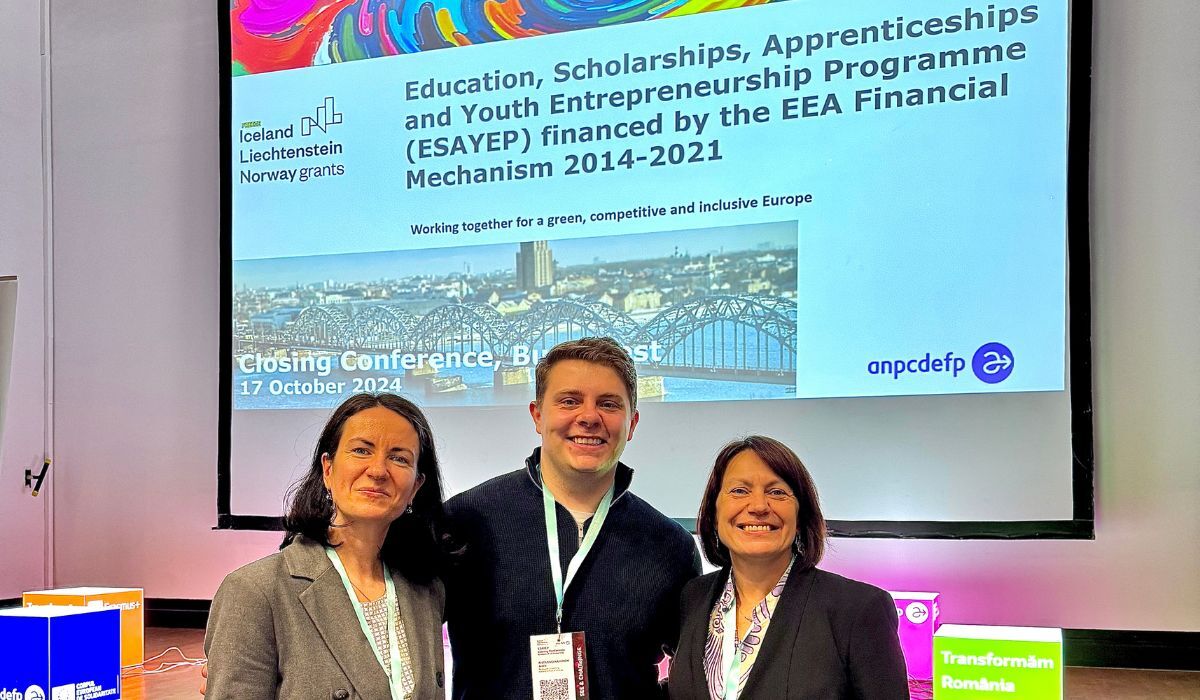
Dr. Adriana Balan (University of Bucharest), Jacob Kaminski (Reykjavik University), and Dr. Sanda Voinea (University of Bucharest) at the ESAYEP closing conference in Bucharest, October 2024, celebrating the ITRES project's success and future collaborations.
Funded by the EEA Grants, the ITRES project introduced a hybrid learning approach that combined online theoretical training with in-person field experiences. Students began with a series of comprehensive online courses that covered key renewable energy topics such as electrolysis, geothermal energy, energy and environmental policy, and power grid simulation. These online modules provided students with the essential theoretical background before embarking on mobility programs, where they traveled to both Romania and Iceland for practical fieldwork.
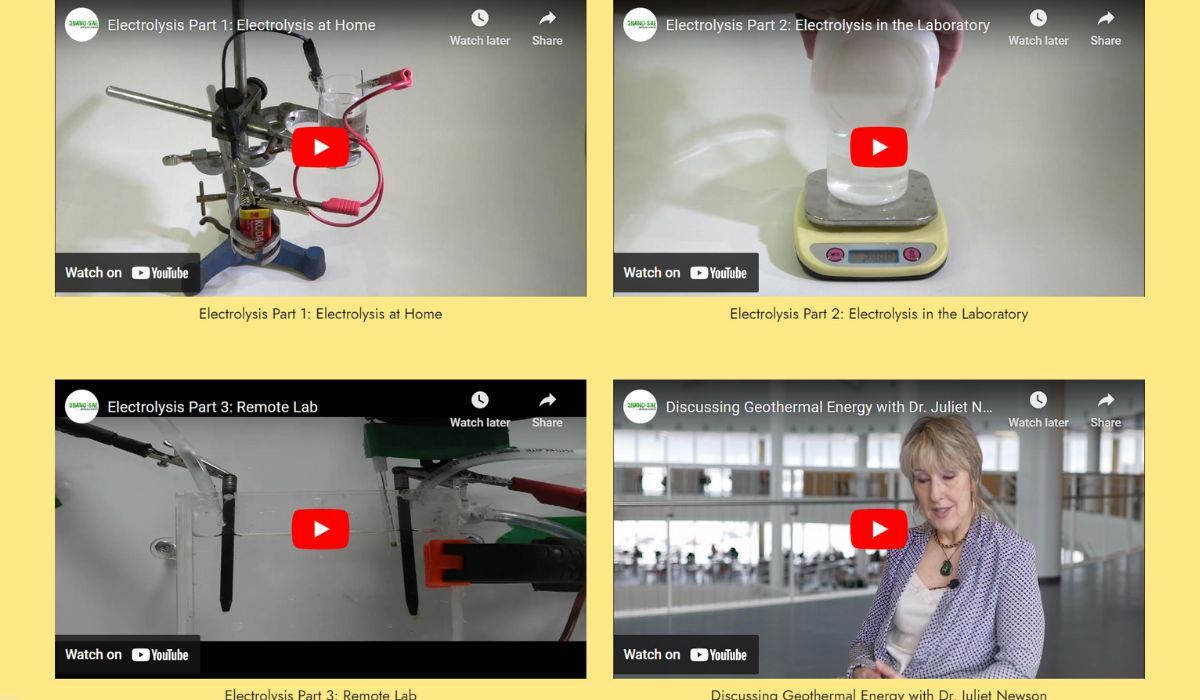
Educational videos created for the ITRES project, available on the ITRES website. These resources cover key topics in renewable energy and provide valuable learning material for students and professionals worldwide.
Through these mobility programs, students visited vital energy infrastructure, including hydropower plants, wind farms, geothermal power plants, and solar arrays. These experiences provided students with invaluable insights into how each country is adapting renewable technologies to meet local energy challenges, offering them a unique perspective on the implementation and management of renewable energy systems.
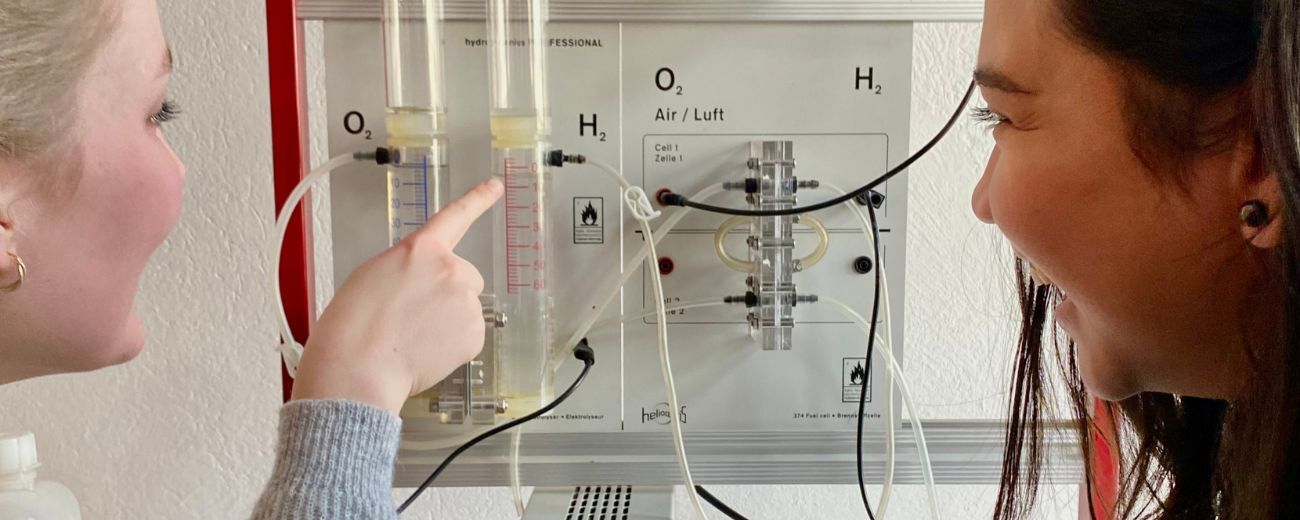
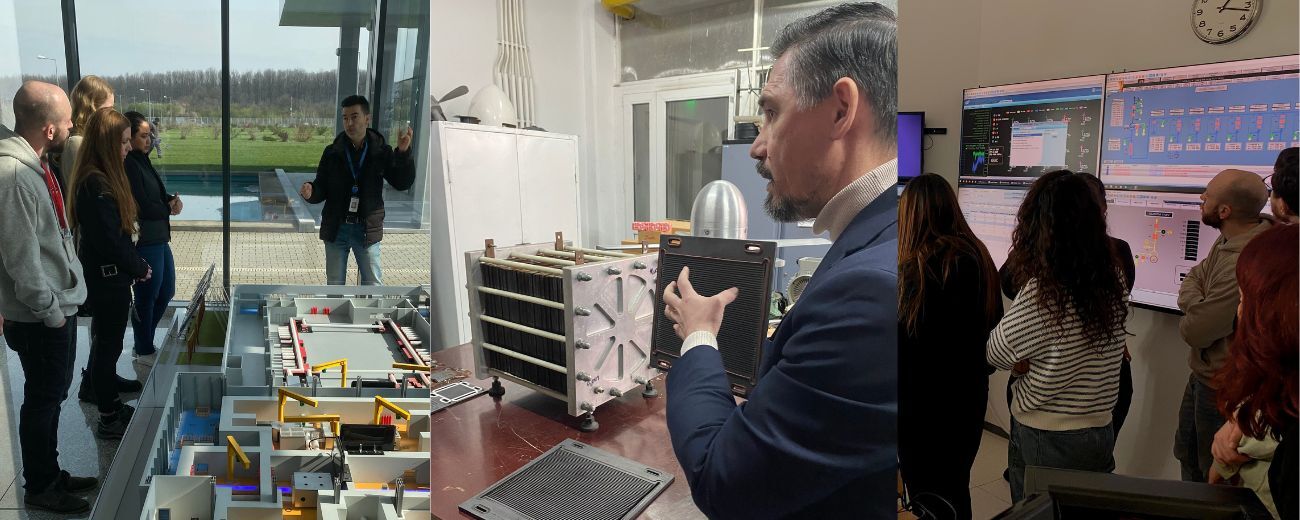
ITRES students in Romania, exploring the country's energy system with a focus on chemical energy storage, highlighting Romania's strengths in renewable energy from hydropower to geothermal.
In response to the challenges posed by the COVID-19 pandemic, the ITRES project developed a series of open-access lectures, making these innovative educational resources freely available to a global audience. These online resources, hosted on the ITRES website, have broadened access to the knowledge and advancements developed during the project, ensuring that students, researchers, and professionals around the world can benefit from this collaborative effort.
The success of the ITRES project has laid the foundation for further collaborations between Iceland and Romania. One such initiative, the SEGES (Sustainability in Education for Green Energy Specialists) project, builds upon the success of ITRES by focusing on fostering entrepreneurship and innovation in renewable energy education. Through these efforts, students are being equipped with the skills and knowledge necessary to meet the rising demand for sustainable energy solutions, ensuring that the next generation of energy professionals is prepared to tackle future challenges.
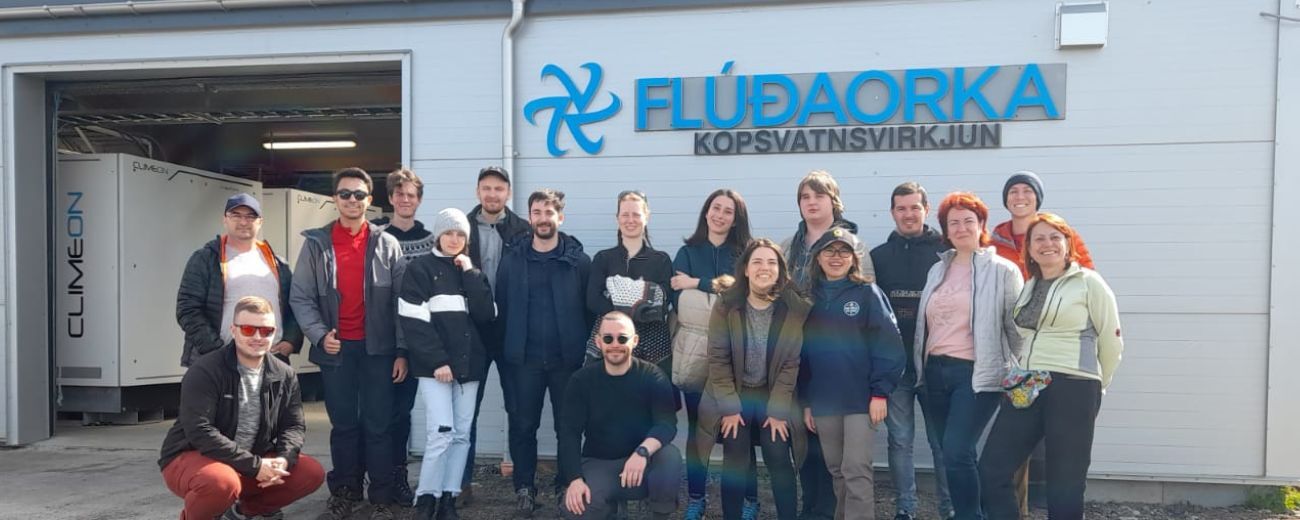 University of Bucharest students visiting a geothermal power plant in Iceland, operated by Baseload Power, gaining insights into Iceland's geothermal energy production and its role in sustainable power generation.
University of Bucharest students visiting a geothermal power plant in Iceland, operated by Baseload Power, gaining insights into Iceland's geothermal energy production and its role in sustainable power generation.
In addition, the GeoThermal Bridge Initiative—supportedby the EEA & Norway Grants—has expanded the scope of collaboration between Iceland and Romania in the field of geothermal energy. This initiative focuses on leveraging geothermal resources as a means to reduce CO2 emissions, contributing to global efforts to combat climate change. By drawing on Iceland's expertise in geothermal energy, the project supports Romania's growing interest in utilizing geothermal resources for applications such as district heating and sustainable agriculture.
The Iceland School of Energy and its partners are deeply grateful to the funding partners from Norway, Liechtenstein, and Iceland for their generous support of the ITRES project. Their contributions through the EEA Grants have made this collaboration possible and have paved the way for even greater achievements in the future of renewable energy education.
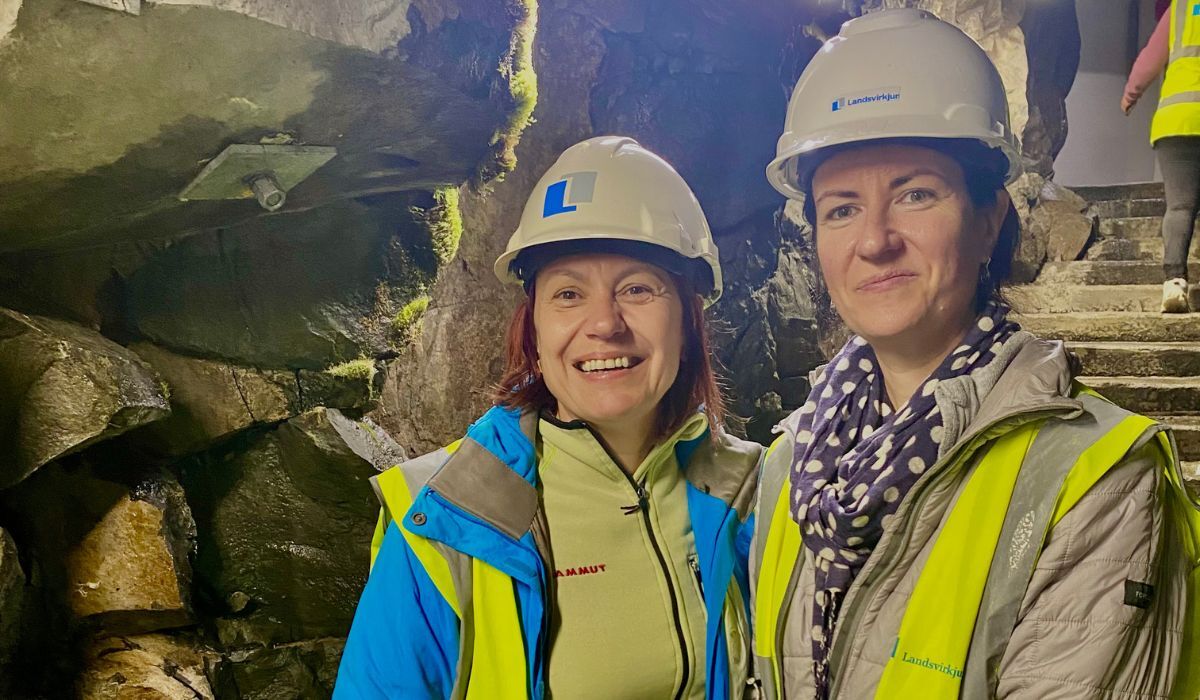
Dr. Sanda Voinea, Dr. Adriana Balan, and students visiting Landsvirkjun's hydropower plant in Iceland as part of the ITRES exchange, learning about Iceland's renewable energy systems.
These projects—ITRES, SEGES, and the GeoThermal Bridge Initiative—represent the beginning of a lasting and fruitful partnership between Iceland and Romania. As both nations continue to explore innovative solutions in renewable energy, these collaborations form the foundation for many exciting future projects. The Iceland School of Energy remains committed to advancing renewable energy technologies and fostering international collaboration to ensure continued success in the field of sustainable energy.
